Research Team
Maria Sofia Lannutti
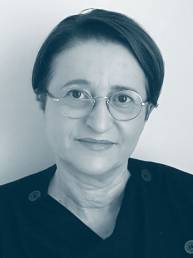
Maria Sofia Lannutti holds the chair of Romance Philology at the University of Florence. Her academic interests mainly concern the relationship between text and music in medieval Romance literature. She conducted comparative studies on prosody and formal structures of Romance poetry, as well as specific research on medieval lyric poetry in French, Italian and Catalan, on Occitan hagiographic literature, on Dante’s De vulgari eloquentia, Commedia and Rime, and on Petrarch’s Canzoniere. She is currently president of the Italian Society of Romance Philology and director of the «Clemente Terni e Matilde Fiorini Aragone» Music Section of the Ezio Franceschini Foundation. She is also the creator and supervisor of the international project «Medioevo Musicale» (MEM), a bibliographical database available for online consultation through the portal MIRABILE. Maria Sofia Lannutti coordinates the research activities of the project ArsNova, within which she takes care of the edition and the interpretation of poetic texts in relation to the coeval production in verse.
Vittoria Brancato
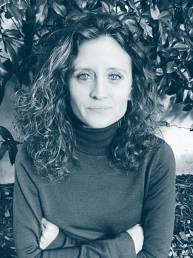
Vittoria Brancato obtained a master’s degree in Literature at the University of Siena (2015), where she later completed a Ph.D. program in Romance Philology co-directed by the École Pratique des Hautes Études of Paris. Her doctoral thesis consisted in the critical edition of Guittone d’Arezzo’s canzoni morali, accompanied by a commentary (2019). She also collaborated with the Opera del Vocabolario Italiano (OVI) in Florence as an editor of the TLIO (Tesoro della Lingua italiana delle Origini); her research focused on the translation into the thirteenth-century Tuscan vernacular of the Legenda aurea, and on the manuscript tradition of Chrétien de Troyes’ romans. Her involvement in the project ArsNova mainly concerns the Catalogue of Ars Nova Manuscripts, Authors and Texts (CANT), and the philological revision and the lemmatisation of the poetic texts for the ANT.
Antonio Calvia
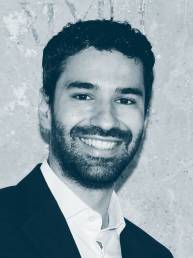
Antonio Calvia graduated with honours in Musicology at the University of Pavia in 2009 and obtained a Ph.D. in Romance Philology in 2013 (Doctor Europaeus, XXV cicle) at the European Doctoral School of Romance Philology (Scuola di Dottorato Europea in Filologia Romanza – École Doctorale Européenne en Philologie Romane, University of Siena). In 2013 he earned a diploma in Composition at the “Nicolini” Conservatory in Piacenza. From 2013 to 2018 he was a research fellow at the Ezio Franceschini Foundation, as member of the project «PIT – Polifonia Italiana del Trecento», developed in partnership by the Franceschini Foundation and the Department of Musicology and Cultural Heritage of the University of Pavia. Since 2008 he has been part of the central editorial staff of the database «Medioevo musicale» (MEM), available for online consultation through the portal MIRABILE, achieving the role of chief editor in 2014. He is currently a research fellow at the Department of Musicology and Cultural Heritage of the University of Pavia. Within the project ArsNova he works on the edition of the musical texts and on the interaction between poetic and musical formal structures for the ANS.
Davide Checchi
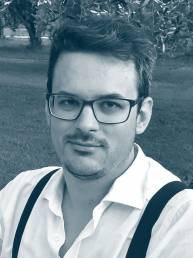
Davide Checchi is an assistant professor of Romance Philology and Linguistics at the Department of Languages, Literatures and Foreign Cultures of the University of Bergamo. Previously, he worked as a researcher in Romance Philology at the Department of Musicology and Cultural Heritage of the University of Pavia (based in Cremona), where he graduated. He continued his studies at the Scuola Normale Superiore – Italian Institute of Human Sciences of Naples, where he obtained a Ph.D. in 2015. His doctoral thesis (critical edition of the twelfth-century bestiary Libro della natura degli animali), was awarded the XI edition of the Aldo Rossi Prize in 2016. In the years that followed, he became a research fellow at the Department of Musicology and took part in the 2015 PRIN project COVO. Il corpus del vocabolario italiano delle origini: aggiornamento filologico e interoperabilità, for which he worked on the lemmatisation of the Concordanze della Lingua Poetica Italiana delle Origini. Between 2018 and 2019 he won the Marco Praloran Fellowship: his research project on the prosody of early Italian poetry was funded by the Ezio Franceschini Foundation, and for one year he assumed the role of premier assistant at the Université de Lausanne (Section d’Italien). Within the project ArsNova, his primary tasks are the critical edition and the revision of Italian and French poetic texts for the ANT, and the analysis of their formal structures for the ANS.
Alice Colantuoni
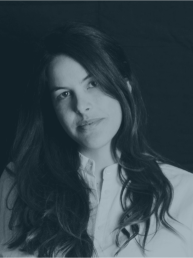
Alice Colantuoni obtained her Ph.D. in 2017 within a joint doctoral program between the École Pratique des Hautes Études, Paris and the University of Naples Federico II. Her thesis resulted in the critical edition of the French Chronique de Morée, a 13th-century historiographical account of the occupation of Greece in the aftermath of the Fourth Crusade. Her research interests include crusader historiography, literature fruition and production in the Latin East, and the French of Outremer. Between 2019 and 2020 she was a Post-Doctoral Research Fellow at the Sun Yat-sen University in Guangzhou, China, where she studied rhetorical features in Medieval French accounts of travels to Eastern Asia. She has collaborated in several international research projects, like project “Aspremont” (Belgium), for which she contributed to the preparation of the new critical edition of the homonymous 12th-century chanson de geste. Her involvement in project ArsNova concerns the implementation of the Catalogue of Ars Nova Manuscripts, Authors and Texts (CANT), the edition of the poetic texts and the study of their linguistic features.
Marco D’Agostino

Marco D’Agostino earned a master’s degree in Codicology at the “La Sapienza” University of Rome in 1989, defending a thesis entitled The decoration of Italian and Greek manuscripts of the Byzantine Age (secc. IX-XI) under the tutorship of Giancarlo Prato. In 1994 he earned a Ph.D. in Greek and Latin Paleography with a final dissertation entitled Italian and Greek manuscripts of the Byzantine Age (secc. IX-XI). From writing to decoration. Since 1994 he has been a research fellow in the M-STO/09 Academic Discipline of Paleography at the Faculty of Musicology of the University of Pavia, based in Cremona, where he has been teaching Codicology and Paleography since 2000. Over the years, his academic interests shifted from Italian and Greek manuscripts to different fields of Greek Paleography (writings on papyrus; manuscripts produced in Constantinople). More recently his efforts have been focused on the field of Latin Paleography and the cataloguing of the manuscripts of the provinces of Cremona and Pavia. He is currently a member of the Associazione Italiana dei Manoscritti Datati (Italian Association of Dated Manuscripts, Florence) and of the Associazione Italiana dei Paleografi e Diplomatisti (Italian Association of Paleographers and Experts of Diplomatics). His role in the project ArsNova is to examine the verbal writings of the manuscripts and to take care of the cataloguing of the fragments.
Barbara Del Giovane
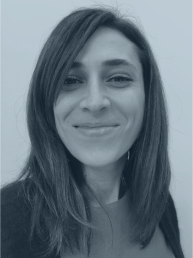
Barbara Del Giovane is currently Assistant Professor in Latin language and literature at the University of Florence (Dilef Department), and recently obtained the Abilitazione Scientifica Nazionale for Associate Professor in the sector 10 / D3 – Latin Language and Literature. She graduated at the University of Florence, where she also completed a PhD course in 2014. Between 2012 and 2013, she was Visiting PhD Student at the Faculty of Classics at the University of Cambridge and Junior Academic Visitor at St John's College in Cambridge. Before becoming Research Fellow and then Assistant Professor at the University of Florence, she was a postdoctoral researcher and a temporary lecturer. She has conducted studies on Seneca; on the Diatribic fragments of Bion of Borysthenes and Teles of Megara and their relationship with several Latin texts; on Cicero, Horace, Varro and Suetonius; on the anonymous poems quoted in the Vitae Caesarum; on Musonius Rufus and on the Roman Stoics; and lastly on the influence of Cicero during the Humanism.For Project ArsNova she focuses on both the edition and the interpretation of the poetic texts in Latin.
Luciano De Santis
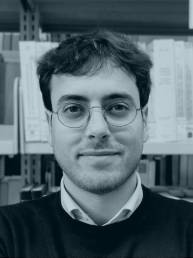
Luciano De Santis graduated from the University of Naples Federico II with a Master thesis on the historical-political genre in medieval French lyric poetry. He continued his education at the University of Siena, where he completed a PhD in co-supervision with the Université de Namur. His thesis consisted in the critical edition of the texts of the trouvère Jehan Erart, exploring in depth their musical aspects as well. His research interests also include occitan lyrical poetry - in particular poetry dealing with political topics - and the manuscript tradition of oitanic songbooks. He collaborates to the Repertorio informatizzato dell'antica letteratura trobadorica e occitana (Rialto), of which he has been editor since 2020, and he annually participates in the compilation of the Bulletin Bibliographique of the Société Rencesvals for the Belgian section. His involvement in the ArsNova project concerns the catalog of authors, texts and manuscripts (CANT).
Michele Epifani
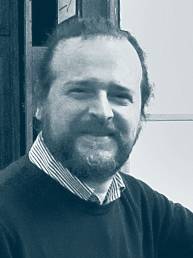
Michele Epifani earned a diploma in Organ and Organ Composition and in Composition at the “G. Rossini” Conservatory of Pesaro. In 2004 he specialised in Composition under the supervision of Azio Corghi and graduated with honours at the National Academy of Santa Cecilia in Rome. In 2011 he obtained a master’s degree in Musicology at the University of Pavia with a thesis on Francesco Landini’s compositions for three voices. From 2017 to 2019 he was a postdoc at the Ezio Franceschini Foundation in Florence and at the Department of Musicology and Cultural Heritage of Cremona. Since 2013 he has been a member of the editorial staff of the project «Medioevo musicale» (MEM), a bibliographical database on medieval music hosted by the portal MIRABILE, and he is also involved in the research project «PIT – Polifonia Italiana del Trecento», directed in partnership by the Ezio Franceschini Foundation (Florence) and The Department of Musicology and Cultural Heritage of Cremona (University of Pavia). As a member of the project ArsNova, he works primarily on the edition of the musical texts for the ANT and on the analysis of the relationship between metrical patterns of the poetry and rhythmic structures of the music for the ANS.
Maria Jennifer Falcone
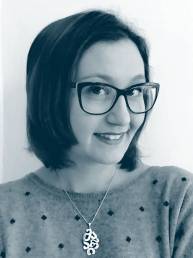
Maria Jennifer Falcone is currently a research fellow in Latin Language and Literature at the Department of Musicology and cultural Heritage of the University of Pavia (based in Cremona), and she obtained a full qualification for the role of Associate Professor in the fields of Classical and Late-Antique Philology and Latin Language and Literature. After receiving her education at the Università Cattolica del Sacro Cuore in Milan, she completed a joint Ph.D. program co-directed by the University of Pavia and the Albert-Ludwigs-Universität of Freiburg i. Br., obtained a four-years research grant at the Università Cattolica di Milano and then worked at the Friedrich-Alexander-Universität of Nürnberg-Erlangen as a researcher and a teacher. Her role in the project ArsNova is to take care of the edition and the interpretation of the poetic texts in Latin.
Giacomo Ferraris
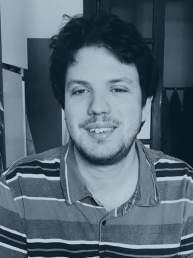
Giacomo Ferraris graduated in Violin and Music Composition at the Milan Conservatory, and in Musicology at the University of Pavia (Cremona) in 2017, with a thesis on the verse anthems of the seventeenth-century English composer Orlando Gibbons. In the same year he was admitted to the doctoral programme of the University of Pavia with a research project focusing on the Codex Rossi, in a notational and analytical perspective. He has presented his research at many conferences, most recently at the Medieval and Renaissance music conference in Lisbon in July 2021, at the European Music Analysis Conference in Moscow in September, and at the annual conference of the Società Italiana di Musicologia in Rome in October. For the Ars Nova project he mainly works on the edition of the musical texts for the ANS.
Luca Gatti
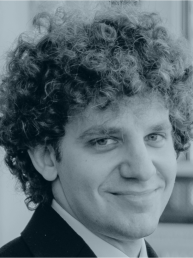
Luca Gatti is a research fellow in Romance Philology at the Department of Musicology and Cultural Heritage of the University of Pavia (Campus of Cremona), and obtained an abilitation as Associate Professor in the field of Medieval-Latin and Romance Philology and Literature (10/E1) by unanimous decision. He studied at the University of Parma and earned his doctorate at the “Sapienza” University in Rome; he also received research grants from the “Federico II” University of Naples, from the “Sapienza” University of Rome and from the University of Padua, and carried out didactic assignments at the universities of Parma, Bologna and Ferrara. His role in project ArsNova includes the edition of the poetic texts and the analysis of their meter.
Carlos C. Iafelice
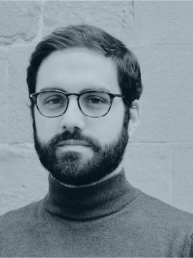
Carlos C. Iafelice graduated in Composition and holds a master in Musicology from the State University of São Paulo (Brazil), with a thesis dedicated to the terminological and phenomenological study of the canon in the fourteenth and sixteenth-century context. He holds a Ph.D. in Musicology from the same university and was then Doctorate Research Fellow at the São Paulo Research Foundation (FAPESP). The doctoral thesis consisted in the inference of analytical elements presented in sixteenth-century Italian treatises on practical music. As part of his doctoral studies, he was the holder of a research internship, also promoted by FAPESP, at the Department of Musicology and Cultural Heritage of the University of Pavia (at Cremona). His research interests include modalism in polyphony up to the sixteenth century, the study of the terminology of the musical treatises, and fourteenth and fifteenth-century Italian musical notation. For the ArsNova project, he mainly works on the edition of the musical texts for the ANT.
Anael Intelisano
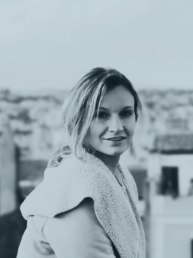
Anael Intelisano graduated with honors in Modern Philology at the University of Catania (2011), where she obtained, approved with merit, a Ph.D. in Interpretation Sciences (2024). Her disertation concern the analysis of the seafaring and fishing lexicon in the Sicilian vernacular. From 2020 to 2023 she was a subject expert for the s.s.d. L-FIL-LET-09 (Romance Philology) at the University of Catania, where also she collaborated on the project “PIAno di inCEntivi per la RIcerca di Ateneo (PIA. CE. RI.) – Corpus dei corpora della testualità in volgare siciliano (secc. XIV – XV) e italo-siciliana (secc. XVI-XX) analisi testuale, stilistico e socio- pragmatica (CORSIT)”. Between May and December 2021 she collaborated with the Opera del Vocabolario Italiano (OVI) in Florence as editor of the Tesoro della Lingua Italiana delle Origini (TLIO). From 2018 to 2023 she was the editor of the Bollettino del Centro di studi filologici e linguistici siciliani of Palermo. Since January 2018 she has been collaborating on the Corpus ARTESIA andVocabolario del Siciliano Medievale (VSM) project. For the project Ars Nova she works on the philological revision and XML-TEI coding of poetic texts for the ANT.
Chiara Martignano
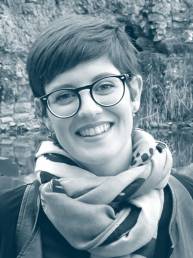
As the digital humanist of the ArsNova project, Chiara Martignano deals with the implementation of the web applications and the necessary IT tools, coordinating the creation of the database and the interactions with the digital support. She is currently attending a Ph.D. program in Philology and Textual Criticism at the University of Siena. For many years her specific academic interest has been the interaction between digital technologies and research in the field of Humanities; thanks to a hybrid university education, she has mastered philology and literature skills (earning a bachelor degree in Modern Literature at the University of Padua in 2014) as well as technical skills, especially related to web design and internet site development (obtaining a master’s degree in Digital Humanities at the University of Pisa in 2017). She then developed her professional training through work experiences at SISMEL and at the Ca’ Foscari University of Venice, which made her capable of working effectively in a collaborative environment hosting both humanists and IT specialists.
Rino Modonutti

Rino Modonutti is Assistant professor of Medieval Latin literature at the University of Padova, where he previously held the position of visiting professor of Medieval and Humanistic Philology. In 2010 he earned a Ph. D. in Medieval Latin Literature and Philology from S.I.S.M.E.L., and in 2014 a second one in Italian Studies from the University of Padova. His main research interests lie in Medieval historiography and encyclopedism, and in the tradition of Classical Latin Literature in the Late Middle Ages and in Italian Humanism. He published the critical editions of Albertino Mussato’s Ludovicus Bavarus and De gestis Italicorum post Henricum spetimum Cesarem (books 1-7). His articles have appeared in «Filologia mediolatina», «Italia medioevale e umanistica», «Studi sul Boccaccio», «Segno e testo», «Filologia e critica». Since 2013 he is member of the editorial board of BISLAM Bibliotheca scriptorum Latinorum medii recentiorisque aevi (S.I.S.M.E.L.); since 2007 he collaborates with C.A.L.M.A. Compendium auctorum latinorum medii aevi (since 2019 as lector), and with «Medioevo latino. Bollettino bibliografico della cultura europea da Boezio a Erasmo» (since 2020 as editor of the Paduan editorial team). He is member of the S.I.S.M.E.L. International Society for the Study of Medieval Latin Culture, of the Renaissance Society of America and the American Boccaccio Association. For the project ArsNova is working on the edition and study of Latin texts.
Daniele Sabaino
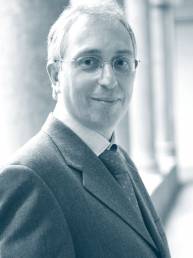
Daniele Sabaino obtained a diploma in Piano (1987) and Composition (1993), a master’s degree in Musicology (1988) and Religious Studies (1998), and a Ph.D. in Musical Philology (1996). In October 2000 he became Associate Professor of Musicology and History of Music at the Faculty of Musicology (now Department of Musicology and Cultural Heritage) of the University of Pavia (based in Cremona), where he teaches Modality; Theory and History of the Notation of Polyphony in the Middle Ages; Harmony and History of the Music of Christian rites. From 2001 to 2007 he directed the Lombard Inter-university School of Specialisation for Secondary Teaching, and he is currently the coordinator of the group for the management of teacher training. His academic interests and his publications comprehend: musical philology and textual criticism; medieval and renaissance music; structure of sound space; theological probabilism in the works of Juan Caramuel Lobkowitz; liturgical musicology throughout history and in present time. Within the project ArsNova, he will analyse the articulation of the musical space of the compositions, in relation to the style of each genre and its diachronic evolution.
Matteo Salaroli
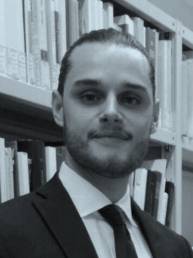
Matteo Salaroli obtained a Master’s degree in Literature at the University of Milan (2014), with a thesis on Guibert of Nogent’s De pigneribus sanctorum – translation and commentary, later published by Brepols (Corpus Christianorum in Translation 24, 2015). In 2018 he completed a Ph.D program in Medieval Latin Literature and Philology at the International Society for the Study of Medieval Latin Culture (SISMEL) in Florence, of which he then became an ordinary member. In the fall of 2018 he became a research fellow at the University of Sassari, where he was involved in the project “The catalogue of Medieval Latin writers”, and in december 2019 he was awarded the Claudio Leonardi Fellowship, an annual post-doctoral grant thanks to which he completed the critical edition of Notker the Stammerer’s Gesta Karoli (forthcoming). For project ArsNova he contributes to the creation of the CANT records, to the lemmatisation of the poetic texts for the ANT and to the edition of the poetic texts in Latin.
Elena Stefanelli
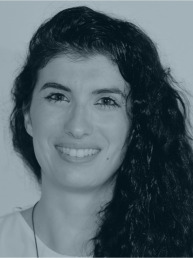
Elena Stefanelli obtained a master’s degree in Modern Philology at the University of Siena (2011), where she later completed a Ph.D. program in Romance Philology. Her doctoral thesis was awarded the II edition of The Colombaria Academy Prize in 2018. She was a research fellow at the Ezio Franceschini Foundation (2016-2017) and at the University of Siena (2018-2020). Her research focused on the early Italian poetry and Arthurian romances. As a member of the «Gruppo Guiron», she published the critical edition of the second part of the Roman de Guiron (Firenze, Edizioni del Galluzzo, 2020). She also collaborated to the implementation of the «Repertorio della Lirica Italiana delle Origini» (LIO),available online through the MIRABILE portal. Her involvement in the project ArsNova mainly concerns the Catalogue of Ars Nova Manuscripts, Authors and Texts (CANT), and the philological revision of the poetic texts for the ANT.
Michele Vescovo
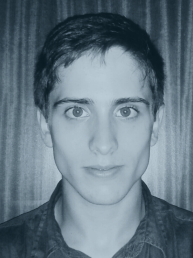
Michele Vescovo obtained a master’s degree in Ancient Civilisations in 2019 at the Ca’ Foscari University of Venice, with a dissertation on Guido Faba’s Gemma purpurea, published by ENTMI. He completed the specialization course in Medieval Latin Philology and Literature in 2024 at the International Society for the Study of the Latin Middle Ages (S.I.S.M.E.L.) in Florence, discussing a dissertation on Guido Faba’s Dictamina rhetorica, soon to be published. He is currently a research fellow at the University of Padua as part of a project on the Historie imperiales by Giovanni de’ Matociis and collaborates with C.A.L.M.A. (Compendium Auctorum Latinorum Medii Aevi). His research focuses mainly on late medieval rhetoric and ars dictaminis, with particular reference to the Bolognese context in the early thirteenth century. As part of the project Ars Nova he deals with the edition of poetic texts in Latin.
Michele Vescovo obtained a master’s degree in Ancient Civilisations in 2019 at the Ca’ Foscari University of Venice, with a dissertation on Guido Faba’s Gemma purpurea, published by ENTMI. He completed the specialization course in Medieval Latin Philology and Literature in 2024 at the International Society for the Study of the Latin Middle Ages (S.I.S.M.E.L.) in Florence, discussing a dissertation on Guido Faba’s Dictamina rhetorica, soon to be published. He is currently a research fellow at the University of Padua as part of a project on the Historie imperiales by Giovanni de’ Matociis and collaborates with C.A.L.M.A. (Compendium Auctorum Latinorum Medii Aevi). His research focuses mainly on late medieval rhetoric and ars dictaminis, with particular reference to the Bolognese context in the early thirteenth century. As part of the project Ars Nova he deals with the edition of poetic texts in Latin.
